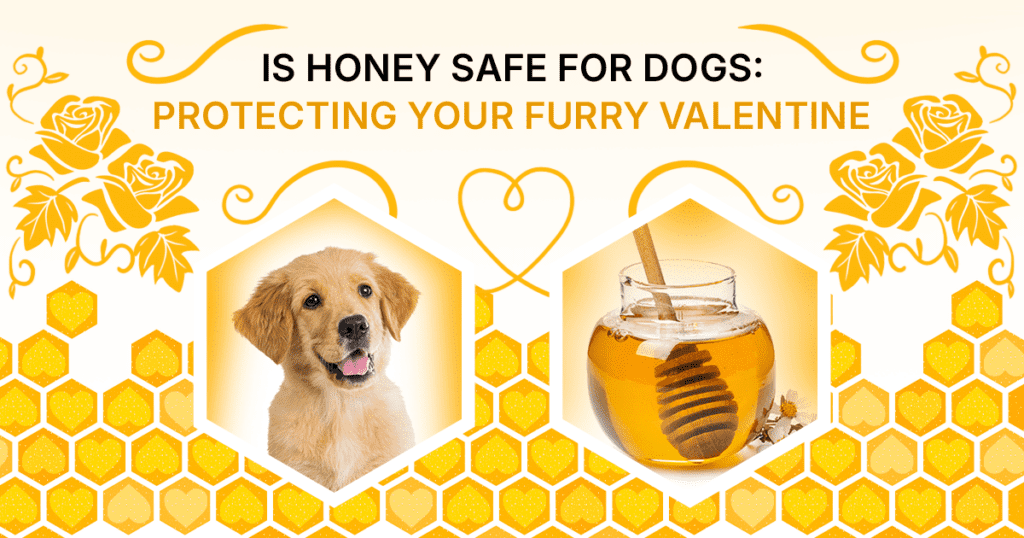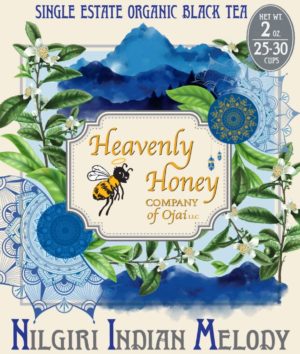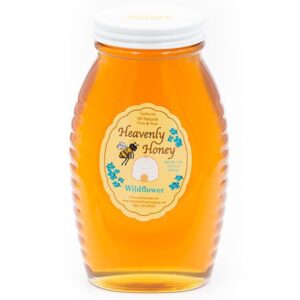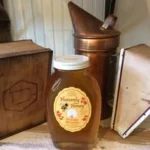
Disclaimer
This article is for informational purposes only and does not constitute veterinary advice. The information provided is based on general research and should not be considered a substitute for professional veterinary consultation. Always consult with your veterinarian for personalized dietary and health guidance for your dog.
It’s Valentine’s Day! Valentine’s Day is a time for showering love on all the special beings in our lives. And for many of us, that includes our furry, four-legged companions. While chocolates and candies are off-limits for dogs, many pet owners wonder if they can share a different kind of sweet treat: honey. The question “is honey safe for dogs” is a common one, and the answer, while generally yes, comes with some important caveats. This article will explore the ins and outs of giving dogs honey, especially raw honey and raw unfiltered honey, ensuring you can share a sweet moment with your furry Valentine safely and responsibly.
Honey, in its natural form, is a complex substance produced by bees from the nectar of flowers. It’s a concentrated source of sugars, primarily fructose and glucose, but also contains small amounts of vitamins, minerals, antioxidants, and enzymes. Many wonder about dogs and raw honey, and the answer is nuanced. Raw honey, in particular, is often touted for its potential health benefits, as it retains more of these beneficial compounds compared to processed honey. However, it’s essential to understand that not all honey is created equal, and there are crucial considerations when sharing this sweet treat with your canine friend.
Indulgle in Natures Sweetness: Treat Yourself or Someone You Love🍯🌿🍵
Treat your “hunny” (and yourself!) to nature’s sweetness this Valentine’s Day. Show your love and care with a gift of pure, natural goodness: our Raw, Unfiltered Wildflower Honey and Nilgiri Indian Melody Loose Leaf Tea. Imagine the delicate floral notes of the wildflower honey, a taste of sunshine captured in a jar, perfectly complementing the smooth, rosy hints of the Nilgiri tea. Both are packed with flavor, offering a healthy and delightful way to indulge.
This Valentine’s Day, skip the chocolates and give a gift that’s both delicious and good for the soul. Our Raw, Unfiltered Wildflower Honey, sourced from the diverse blooms of the Ojai Valley, offers a unique taste of nature’s bounty. Paired with our aromatic Nilgiri Indian Melody Loose Leaf Tea, a single-estate tea from the Nilgiri Blue Mountains, it creates a truly special experience. Explore more raw, unfiltered honey flavors and loose leaf tea flavors below and discover the perfect combination for your loved ones (and yourself!).
Raw, Unfiltered HoneyCollection | Loose Leaf Tea Collection
Now let’s jump into the Benefits, Risks and Alternatives of Honey For Dogs!
The Potential Benefits of Honey for Dogs (in Moderation)
While honey should never be a staple in a dog’s diet, small amounts can offer some potential benefits. Raw honey, thanks to its antioxidant content, may help support a dog’s immune system. Antioxidants are compounds that neutralize free radicals, unstable molecules that can damage cells and contribute to various health problems. Some proponents also suggest that the antibacterial properties of honey could be beneficial for minor cuts or skin irritations, although consulting a veterinarian is always recommended before using honey topically.
There’s also anecdotal evidence suggesting that honey might help alleviate seasonal allergies in dogs, but scientific research in this area is limited. Many owners are curious about the health benefits of honey for dogs, and while there are some, they are best achieved when honey is given in moderation. While honey can be a sweet treat for dogs, many owners wonder, ‘Is honey good for dogs?’ The answer is yes, in moderation, but it’s crucial to understand the details and potential risks before adding it to your dog’s diet.
The Risks of Giving Dogs Honey: What You Need to Know
Despite the potential benefits, it’s crucial to be aware of the risks associated with giving dogs honey. The primary concern is the high sugar content. Like humans, dogs can suffer from the negative effects of excessive sugar intake. Weight gain is a common consequence, which can lead to a cascade of other health issues, including joint problems, heart disease, and diabetic dogs. Dental problems are another concern, as sugar can contribute to plaque buildup and tooth decay. It’s important to remember that just because dogs eat honey with enjoyment, it doesn’t mean it’s without risk.
Diabetic dogs are a particularly important consideration. Dogs with diabetes have difficulty regulating their blood sugar levels, and consuming honey can cause a dangerous spike in blood glucose. This is why it’s absolutely essential to consult with your veterinarian before giving honey to a diabetic dog. In some cases, even a tiny small amount of honey could be detrimental to their health condition.
Another potential, though less common, risk is botulism. Raw honey can sometimes contain spores of the bacteria Clostridium botulinum, which can cause botulism in dogs, a rare but serious neurological illness. While adult dogs generally have a higher resistance to botulism due to their gut flora, puppies on the other hand with their still-developing immune systems, are more vulnerable. Therefore, it’s generally recommended to avoid giving raw honey to honey for puppies under one year of age. This is also why many ask about “honey for puppies” specifically. Understanding the relationship between raw honey and dogs is crucial for pet owners.
Safe Honey Practices for Your Furry Friend
If you decide to feed your dog honey as an occasional treat, here are some guidelines to follow:
- Moderation is paramount: Honey should be given sparingly. A teaspoon or less, depending on the size of your dog, is usually sufficient. Think of it as a special treat, not a regular part of their dog’s diet.
- Consult your veterinarian: This is especially important if your dog has any pre-existing health conditions, particularly diabetic dogs, or if you have any concerns about introducing honey into their diet. Your vet can provide personalized advice based on your dog’s individual health.
- Choose your honey wisely: While some believe raw honey offers more health benefits, it also carries a slightly higher risk of botulism. Pasteurized honey is generally considered safer, as the pasteurization process kills most bacteria, including Clostridium botulinum spores. However, even pasteurized honey should be given in moderation due to its high sugar content. Some wonder about manuka honey specifically, and while it shares similar benefits and risks, the same guidelines apply.
- Observe allergic reactions: Dogs can have allergies just like humans. After giving your dog honey for the first time, keep a close eye for any signs of allergic reactions, such as itching, hives, swelling, digestive upset (vomiting or diarrhea), or difficulty breathing. These precautions are important because undetected reactions can lead to dog allergies honey from becoming a significant issue.
- Consider alternatives: There are many other healthy and safe for dogs treats you can give your dog. Consider options like small pieces of cooked chicken, carrots, apples (without the core), or commercially available dog treats specifically formulated for canine health.
Sharing the Sweetness Responsibly
Sharing a small amount of honey with your dog as an occasional treat can be a way to show your love, especially around Valentine’s Day. However, it’s crucial to do so responsibly, keeping in mind the potential risks and following the guidelines outlined above. Prioritizing your dog’s health and well-being is the best way to ensure a long and happy Valentine’s Day, and many more, together.
Many owners want to know “can dogs have honey?” and the answer is yes, with care. Remember feeding dogs honey should always be done in moderation. Some owners even look for information on “raw honey for dog allergies” and “raw honey for dogs allergies” hoping for a natural remedy, but it’s important to consult a vet for proper allergy management. Thinking about “feeding your dog” honey? Remember these guidelines.
Frequently Asked Questions About Honey For Dogs
What type of honey is safe for dogs?
Both raw honey and pasteurized honey are generally considered safe for dogs in small amounts. However, due to the potential risk of botulism, it’s often recommended to avoid giving raw honey to puppies. Pasteurized honey is generally considered safer for adult dogs in general. Regardless of the type of honey, moderation is key. Consult with your veterinarian for personalized advice.
Is honey safe for dog’s skin?
Some people use honey topically to treat minor skin irritations in dogs due to its potential antibacterial properties. However, it’s crucial to consult with your veterinarian before using honey or any other home remedy on your dog’s skin. They can diagnose the underlying cause of the skin irritation and recommend the most appropriate treatment.
Are there any risks associated with consuming honey during pregnancy?
The primary concern with honey is the potential presence of Clostridium botulinum spores, which are generally harmless to adults but can pose a risk to infants under the age of 1 year.
Is it safe to give dogs honey for a cough?
Some believe honey can soothe a cough in dogs. However, it’s essential to consult with your veterinarian to determine the underlying cause of the cough. A cough can be a symptom of various health issues, some of which may require specific treatment. Your vet can recommend the most appropriate course of action for your dog’s cough.
Can dogs have honey for allergies?
While some believe raw honey can help with seasonal allergies in dogs, there’s limited scientific evidence to support this claim. It’s always best to consult with your veterinarian about managing your dog’s seasonal allergies. They can recommend appropriate allergy medications or other treatments.
Can dogs have raw unfiltered honey?
Adult dogs can generally have raw honey in moderation. However, due to the potential risk of botulism, it’s generally not a recommended honey for puppies. Always consult with your veterinarian for guidance, especially if you have puppies or if your adult dog has any underlying health condition.





